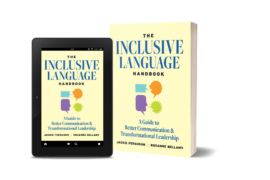Reliability has been the bedrock of business since the earliest humans bartered goods and services. Then, as now, a person’s integrity and their reputation led to prosperity and strong interpersonal relationships. In fact, reliability is so foundational that it is often overlooked as a management skill. We think about charisma as a primary trait of strong leaders, but leadership is impossible without reliability.
Being a reliable leader means doing what you say you will do each and every time, while also ensuring your actions are fair and accurate. The hallmarks of reliable leaders include dependability, dedication to high-quality work, and adhering to timelines and budgets. Every interaction is an opportunity to build trust and strengthen relationships—whether with colleagues, employees, or customers.
When an executive gets to the C-suite, reliability is a baseline expectation, explains Donald Thompson, CEO and Co-founder of The Diversity Movement.
“Yes means yes, no means no, and people can count on your commitments to be followed through,” he says. “As a leader, you have to show up and put in a hard day’s work just as you ask your team to do. You also have to be there to support them—to help them succeed and grow.”
Reliability is essential in building high-trust cultures and high-performing businesses. According to research from the Harvard Business Review, trust is linked to a host of favorable outcomes. Workers at high-trust companies report 74% less stress, 106% more energy at work, 50% higher productivity, 13% fewer sick days, 76% more engagement, 29% more satisfaction with their lives, and 40% less burnout than people at low-trust companies. Great Places to Work also ties increased levels of workplace trust to higher business performance and greater employee satisfaction.

Reliability, consistency, and trust lead to high-performing teams
An inclusive leader demonstrates their dependability, treating their colleagues and employees with consistent respect, no matter their role or status. Reliable leaders cultivate an inclusive workplace culture, where everyone’s unique talents are appreciated and all employees can do their best work. Their reliability creates psychological safety, which is foundational to leveraging the power of diverse teams. Safe and collaborative environments spark innovation and efficient problem-solving, leading to better business results.
Leaders who are reliable and consistent also act as standard bearers for the organization’s mission and purpose. The alternative is a workplace driven by chasing the next shiny object or trying to hit constantly moving targets, which result in morale plummeting and projects rarely succeeding. Few people enjoy unpredictability or walking into work, wondering, “What kind of mood is the boss in today?” In business, as in life, uncertainty breeds confusion.
People perform better when they can follow a plan and know what is expected of them. Certainly these factors can change, based on new information or goals, but in the long run, a team guided by an inconsistent or unreliable leader is going to be stressed and anxious.
“Culture is fundamentally tied to reliability,” says Jamie Ousterout, Chief Experience Officer at The Diversity Movement. “Trust can’t be established if it’s only senior male managers who express confidence, while front-line employees or women in leadership roles undergo a distinctly disparate experience. Consistency in the employee experience forms the bedrock of building a trustful and inclusive work environment.”
Determination and a focus on high-quality results
Reliable leaders exhibit unwavering determination regardless of challenges. They are resilient and persistent, while demonstrating the fortitude to persevere when confronted with obstacles. As an immigrant, Edessa Polzin, the Manager of Learning Partnerships at the American Marketing Association (AMA), has had to navigate significant challenges to achieve success in the United States. Her experiences have taught her the value of what she calls “grit.”
“It’s the kind of determination that keeps you moving forward, even when faced with significant challenges,” she says. “I’ve learned that success often demands resilience, adaptability, and an unwavering commitment to one’s goals. It’s not about being the smartest or most talented; it’s about having the determination to persevere, learn, and grow.”
It’s important to note that being a reliable, dependable leader doesn’t mean that you have to take on every project. In a high-stakes professional environment there can be enormous pressure to say “yes.” Agreeing to too many initiatives, though, can actually sabotage a leader’s overall reliability, while also undermining their team’s effectiveness.
Executives are measured by how they allocate their time, as well as where they dedicate resources. A better practice is to thoughtfully weigh different options, and carefully choose where to invest energy and effort. By establishing boundaries, a leader shows they value integrity, transparency, and exceptional results.
Enhance Reliability with Four Crucial Leadership Skills
Striving for reliability and dependability is much smarter than attempting to be perfect, which is unobtainable. By showing your team that you are consistent and setting clear expectations, everyone will understand how to get their job done in a productive way. To foster a culture of excellence, it’s also vital to communicate transparently, prioritize collaboration, and maintain accountability as circumstances change. Working to build these important skills will elevate your leadership.
- Set clear expectations: Establish clear and achievable expectations regarding goals, timelines, and deliverables. Ensure everyone understands their role and responsibilities. As a leader, delegate tasks and responsibilities effectively. Assign tasks to team members based on their strengths and expertise, and then trust them to deliver.
- Communicate consistently and transparently: Maintain open and consistent communication with your team—transparency builds trust. Be proactive in sharing any challenges or delays, so your team can quickly adjust. Establish protocols for regular updates on projects—at 25%, 50%, and 75% completion—so you can offer collaborative, constructive feedback.
- Prioritize collaboration and teamwork: Make sure your entire team knows that you expect them to work together to achieve the objective. Empower your team to ask for assistance as needed and offer assistance when appropriate. Seek ways to support them, while making it clear you have confidence in their abilities.
- Face challenges with accountability: When unexpected circumstances arise, cultivate accountability by focusing on the stated objectives and then making prompt adjustments. When the pressure is intensifying, encourage your team and provide the support and resources they need. While it is not always easy, a reliable leader approaches setbacks as opportunities for learning and improvement, while also working with the team to identify strategies to prevent them in the future.
Reliability is foundational and can always be enhanced. By focusing on improving your feedback, communication, and accountability, you’ll continue to cultivate this crucial capability, while also fostering a culture of consistent achievement and growth.
“Reliable leaders are important because they serve as role models for the entire organization,” Thompson says. “They create trust company-wide, which leads to a stronger culture that is prepared for winning in the new economy.”
Join the ranks of forward-thinking organizations that are harnessing the power of inclusive leadership to build stronger executive and managerial teams. Contact us today to learn how TDM LeaderView can transform your team and enable your organization to thrive.
Jackie Ferguson, CDE, is co-founder and vp of content and programming at The Diversity Movement. She wrote The Inclusive Language Handbook and hosts “Diversity: Beyond the Checkbox,” a top-rated podcast. She was named to the 2023 Inc. Female Founders 200 list. Connect with her on Linkedin.




